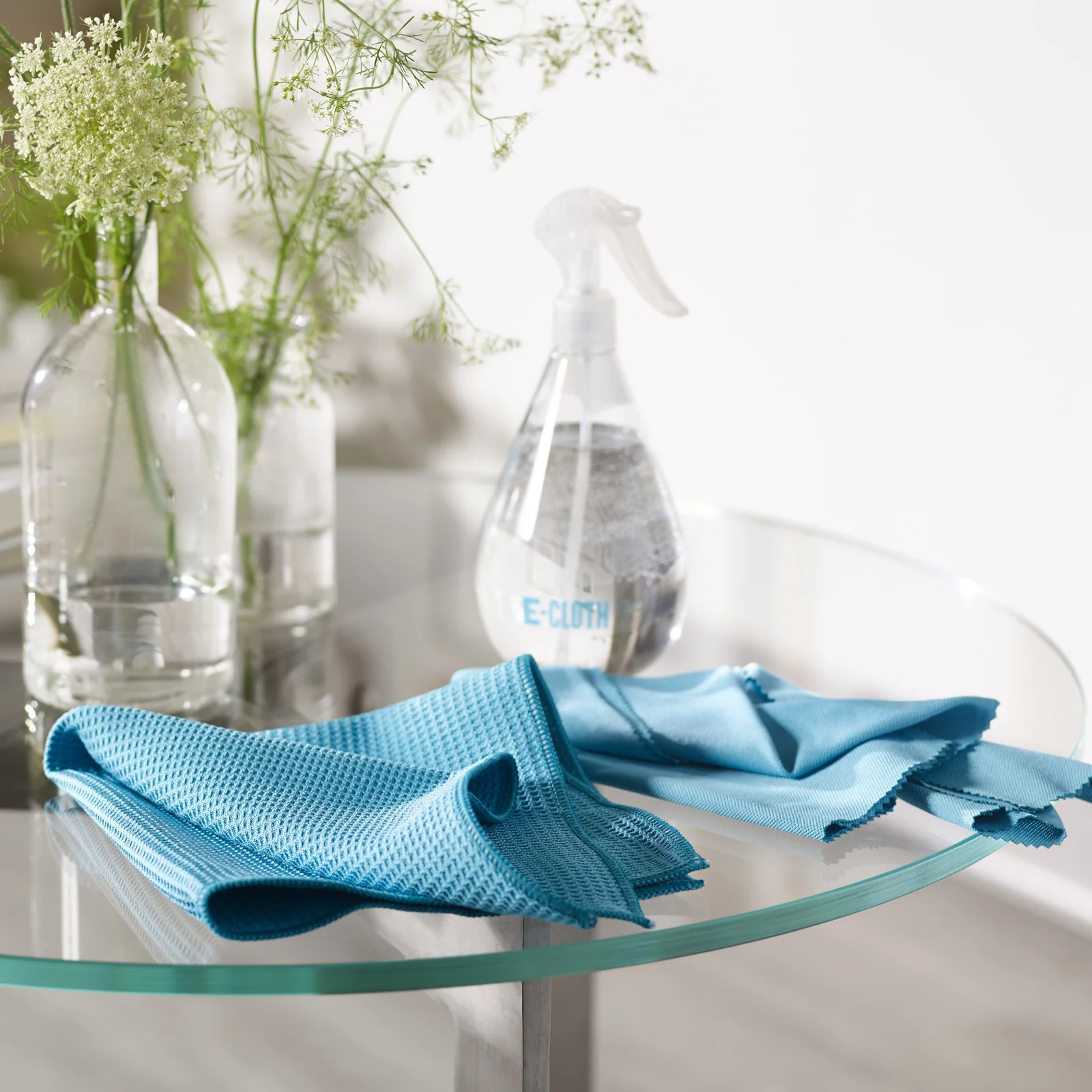Table of content:
How Often You Should Clean Your Kitchen sink
Consequences of Skipping Kitchen sink Cleaning
DIY Methods to Clean Your Kitchen sink
A clean kitchen sink is essential for both hygiene and the overall look of your kitchen. While it’s easy to overlook, your sink quickly collects food particles, stains, and residue that can lead to odors, clogs, and even attract pests if left unchecked. Establishing a simple routine of daily wipe-downs and weekly deep cleans helps prevent these issues, making maintenance easier and keeping your kitchen fresh and inviting. With just a bit of regular care, you can avoid the hassle of tough stains and keep your sink in top shape for years to come.

A Clean You Can See
Our high-performance microfiber products simplify cleaning, making it quick, easy, and effective, so you can enjoy visible results without the fuss. No streaks, just results.
How Often You Should Clean Your Kitchen sink
How Often to Clean Your Kitchen Sink
With over ten years of experience keeping spaces gleaming, here's the down-to-earth scoop on your kitchen sink. While it may seem sturdy, this everyday area is a magnet for food particles and spills, which can build up both appearance and performance issues over time.
- Daily Maintenance: After meals or food prep, quickly rinse and wipe your sink to clear away residues. This light cleaning prevents buildup and the formation of persistent stains.
- Weekly Deep Cleaning: Even if you’re on top of daily care, a thorough cleaning once a week is key. This deeper clean addresses any soap scum, mineral deposits, or stubborn spots that accumulate unnoticed.
Keeping up with this routine not only ensures your sink looks inviting but also minimizes potential long-term damage. Consistent care makes it easier to maintain the overall look and durability of your kitchen space without feeling overwhelmed.
Streak-Free Wherever You Need It
E-Cloth is committed to delivering a clean you can see—effortlessly erasing messes with just water for a spotless shine, free of streaks and added chemicals.

Consequences of Skipping Kitchen sink Cleaning
Consequences of Skipping Kitchen Sink Cleaning
- Lingering Odors: When you skip cleaning your kitchen sink, food scraps and grease can build up in the drain and around the basin. Over time, this creates a breeding ground for unpleasant smells that can make your whole kitchen feel less inviting.
- Visible Grime and Stains: Sinks are magnets for coffee rings, water spots, and mystery splatters. If you don’t clean regularly, these marks can become stubborn stains that are much harder to wipe away later.
- Clogged Drains: Bits of food, soap residue, and grease can accumulate and eventually block your drain. This doesn’t just slow down water flow—it can also lead to standing water, which is a pain to deal with and can make your sink look perpetually dirty.
- Unwanted Guests: A dirty sink can attract pests like fruit flies and even ants. These critters are drawn to leftover food particles and moisture, turning your kitchen into their new favorite hangout.
- Film and Residue Buildup: Over time, minerals from hard water and soap can leave a filmy residue on your sink’s surface. This not only looks dull but can also make your sink feel gritty to the touch.
- Cross-Contamination Risks: If you’re prepping food in or near a dirty sink, there’s a higher chance of transferring grime or residue to your dishes, utensils, or even your hands. This can make your kitchen less pleasant to use and may increase the risk of spreading messes around.
- Extra Elbow Grease Required: The longer you wait to clean, the tougher the job gets. Dried-on gunk and stains require more scrubbing and time, turning a quick wipe-down into a full-on cleaning session.
DIY Methods to Clean Your Kitchen sink
.svg)
Baking Soda and Vinegar
Sprinkle baking soda over the kitchen sink, then pour white vinegar on top. Let the mixture fizz and sit for a few minutes. Scrub with a sponge and rinse with warm water. This natural method helps remove stains, deodorize, and leave your sink sparkling clean.
.svg)
Lemon Juice and Salt
Sprinkle salt over the kitchen sink, then squeeze fresh lemon juice onto the salted areas. Scrub with a sponge or cloth, focusing on stains and buildup. Rinse thoroughly with water. This natural method deodorizes and removes grime, leaving your sink clean and fresh.
.svg)
Hydrogen Peroxide and Cream of Tartar
Mix hydrogen peroxide and cream of tartar to form a paste. Apply the paste to stains or grime in your kitchen sink, let it sit for a few minutes, then scrub with a sponge and rinse thoroughly. This combination helps lift tough stains and leaves your sink sparkling clean.
.svg)
Borax and Hot Water
Dissolve 2 tablespoons of borax in 1 quart of hot water. Pour the solution over the kitchen sink and scrub with a sponge or brush. Rinse thoroughly with clean water. This method helps remove stains, deodorize, and leave your sink sparkling clean.
.svg)
Limited Cleaning Power
Baking soda and vinegar may not effectively remove tough grease, grime, or clogs in kitchen sinks because their reaction is mild and lacks the strength needed for deep cleaning or dissolving stubborn buildup.
.svg)
Bacterial Residue Remains
Lemon juice and salt may not fully eliminate bacterial residue in the kitchen sink, leaving behind harmful microbes. This DIY method lacks the disinfecting power needed for thorough sanitation, risking potential health hazards.
.svg)
Pipe Corrosion Risk
Using hydrogen peroxide and cream of tartar can accelerate pipe corrosion, especially in metal plumbing, as the mixture may react with the metal, weakening pipes and increasing the risk of leaks or failure over time.
.svg)
Grease Build-Up Persists
Borax and hot water may not fully dissolve or break down heavy grease build-up, leaving residue behind. This method lacks the degreasing power needed for stubborn, thick grease, so the sink remains dirty despite repeated cleaning attempts.
Ready for an Easier Way to Clean?
Skip the mixing, spraying, and scrubbing. With E-Cloth, you get a streak-free shine using just water—no added chemicals, no hassle. Make every window sparkle the simple way.
Explore other Articles
Headphones
Learn how often to clean your headphones for optimal sound and hygiene. Simple tips to keep them fresh and lasting longer.
Bookshelves
Discover the ideal frequency to clean your bookshelves for a dust-free, organized, and fresh home library.
Jeans
Discover the ideal frequency to clean your jeans for lasting style, comfort, and fabric care. Keep them fresh and durable!
Range hood filter
Learn how often to clean your range hood filter for optimal kitchen air quality and appliance efficiency. Keep it fresh and safe!
Washing machine
Learn how often to clean your washing machine for optimal performance and freshness. Keep your laundry fresh and your machine efficient!
Garage floors
Discover the ideal frequency for cleaning your garage floors to keep them spotless and well-maintained year-round.
Experience Real Cleaning
A Clean You Can See
Experience Real Cleaning


